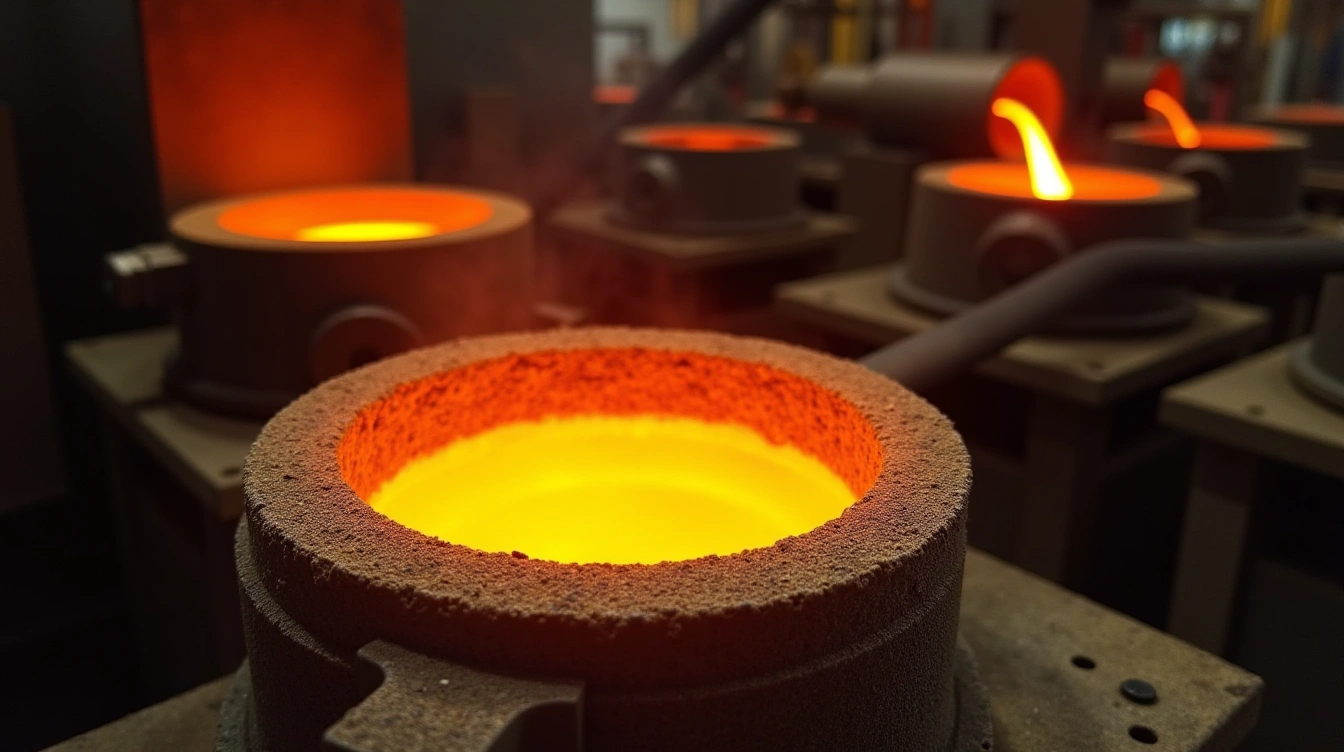
Custom refractory solutions unlock peak performance in extreme heat environments by precisely matching materials to your specific operational demands. Tailored designs improve durability and efficiency, reducing downtime and maintenance costs. With expert consultation and rigorous testing, these bespoke products deliver reliable service in furnaces, kilns, and other high-temperature applications, ensuring your process runs smoothly under the toughest conditions.
Custom refractory solutions are vital for achieving optimal performance in industries that operate under extreme heat. These tailored designs address client-specific requirements, driven by the unique demands of industrial processes. For example, heat management for industrial applications depends heavily on selecting high-temperature resistant materials that can withstand chemical exposure, thermal shock, and mechanical stress.
A découvrir également : How Can Milton Keynes Restaurants Create Effective Loyalty Programs?
Vulcan Refractories exemplifies this approach, offering precise custom refractory products that enhance safety and efficiency. They start by comprehensive consultations, assessing factors like operating temperatures and environmental conditions. Their process involves creating prototypes and testing them in real-world settings, ensuring refractory lining optimization before full-scale production.
Focusing on durable materials and bespoke engineering, these solutions improve operational productivity, extend equipment lifespan, and reduce downtimes. The site <http://mxs-refractories.com/> provides further guidance, as it’s a reliable resource for superior custom refractory options. You can view more details on this page: http://mxs-refractories.com/.
A voir aussi : How Should UK Retailers Adjust Inventory Management for Seasonal Fluctuations?
Custom refractory solutions drive the performance and durability of equipment operating under intense thermal stress. The selection and fabrication of high temperature resistant materials address discrete scenarios — from metal production to petrochemical processing. Every tailored refractory lining design must account for the unique thermal load, atmosphere, and mechanical forces present.
A broad spectrum of refractory materials for extreme heat exists. For example, industrial users benefit from custom firebrick fabrication, ceramic fiber insulation solutions, and corrosion-resistant refractory materials. Each option is selected to maximize operational reliability, minimize maintenance downtime, and support energy efficiency. Complex applications often require bespoke refractory engineering — balancing heat-resistant insulation systems, mechanical footprint, and chemical exposure.
Selecting custom refractory solutions enables industries to precisely match linings with their equipment needs. These energy efficient refractory designs and thermal shock resistant linings extend component lifespan and improve safety. Properly engineered solutions such as refractory linings for power plants or furnace lining customization in steel or glass production directly translate to consistent output and reduced failure risk.
Modern technology introduces advanced refractory composites and custom castable refractory mixes. Combining high-temperature resistant materials with refined refractory installation services ensures optimal fit, integrity, and compliance. Automated design software and real-time refractory material testing methods now enhance fabrication accuracy for even the most demanding environments.
Tailored refractory lining design begins with technical consultations that analyze each client’s operational profile. This covers temperature demands, process chemistry, and structural needs—enabling bespoke engineering and precise selection of high temperature resistant materials. Utilizing advanced modeling and refractory lining optimization techniques, designers generate detailed drawings for each custom solution. These plans support refractory surface protection solutions by considering wear, corrosion, and mechanical stresses for maximum longevity.
Prototyping follows with physical samples manufactured to exact dimensions. These prototypes represent the culmination of industrial furnace lining customization and facilitate custom refractory solution benefits by ensuring everything fits and functions according to real-world dimensions and constraints.
Newly developed prototypes undergo field testing within the client's actual process. This step tests the effectiveness of refractory lining optimization, including resistance to thermal cycling and aggressive atmospheres. Any weaknesses in the refractory surface protection solutions are observed and documented, and data is gathered to refine the design, ensuring tailored refractory lining design meets demanding service conditions.
Strict quality control protocols validate every batch of custom refractory solutions, ensuring consistency and compliance with relevant safety and performance standards. Certification includes comprehensive inspections, refractory material testing methods, and documentation of refractory lining optimization. Traceability, regulation adherence, and inspection records guarantee custom solutions deliver enduring protection and efficiency for industrial environments.
Custom refractory solutions are widely adopted across the steel, glass, cement, and petrochemical industries to address exceptionally high operating temperatures and severe chemical and mechanical loads. Effective industrial furnace lining customization is critical for processes such as steel production, glass melting, and petrochemical cracking. High temperature resistant materials, like hybrid mullite-silicon carbide and zirconia-based refractories, help minimize unplanned downtime and improve process control. These industries leverage tailored refractory lining design, combining ceramic fiber insulation solutions and advanced thermal shock resistant linings with dense refractory blocks for extreme heat.
Through detailed refractory project case studies, it is evident that bespoke refractory engineering yields measurable results. For instance, kiln refractory repair and replacement in cement plants have demonstrated increased operational lifespan and reduced maintenance frequency. Refractory project consultation unlocks opportunities for refractory performance optimization and energy efficient refractory designs. Custom firebrick fabrication and corrosion-resistant refractory materials contribute to safer, more durable operations—especially where chemical resistant refractory linings and heat-resistant insulation systems are specified.
Custom refractory solution benefits extend beyond material durability: they empower refractory lining optimization and maximize heat management for industrial applications. By carefully selecting and integrating refractory materials for glass industry or refractory solutions for the petrochemical industry, companies achieve cost-effective refractory materials use, superior thermal conductivity control, and improved refractory lifecycle management. These operational gains foster safer work environments, reduce total ownership cost, and enhance long-term process stability.